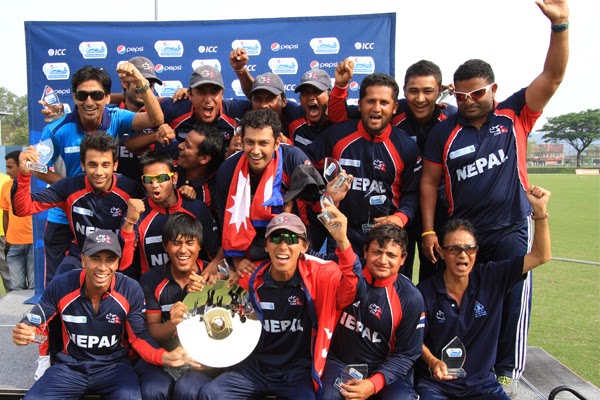म त्यो वर्गमा पर्छु जसलाई श्रीमती भनिन्छ | म एउटी श्रीमती हुँ | र, संयोगवस् होइन, म एउटी आमा हुँ |
हालसालै मेरो एक पुरुष साथी भेट भयो जसको भर्खरै डिभोर्स भएको छ |
उनको एउटा बच्चा थियो जो पक्कै उनकी पूर्वश्रीमती सँग छ | उनी स्वाभाविकै अर्की
श्रीमतीको खोजीमा छन् | एक साँझ आइरन गरिरहेको बेला उनलाई सम्झिए र अचानक मेरो पनि
एउटा श्रीमती भए हुन्थियो भन्ने मलाई लाग्यो | मलाई किन श्रीमती चाहियो?
म फेरी स्कूल जान चाहन्छु जसले गर्दा म आर्थिक रुपमा आत्मनिर्भर भई,
आफू र परेको खण्डमा आफूमाथि निर्भर हुनेहरुलाई हेर्न सकूँ | मलाई यस्ती श्रीमती
चाहिएको छ जसले कमाएर
मलाई स्कूल पाठाओस् | र जब म स्कूल जान थाल्छु, मेरी श्रीमतीले मेरो छोराछोरीको
हेरचाह गरोस् | मलाई एउटी श्रीमती चाहिएको छ जसले बच्चाहरुलाई डाक्टर र
डेन्टिस्टकोमा लाने समयको ख्याल राखोस् अनि, मेरो पनि | मलाई एउटी श्रीमती चाहिएको
छ जसले मेरा छोराछोरीहरुको खानपिन र सरसफाईको ध्यान राखोस् | मलाई एउटी श्रीमती
चाहिएको छ जसले छोराछोरीको लुगा धोएर राम्ररी राखोस् | मलाई एउटी श्रीमती चाहिएको
छ जसले मेरो छोराछोरीको राम्रो पालनपोषण गरोस्, उनीहरुको स्कूल जाने व्यवस्था,
उनीहरुको साथीभाईहरुसंग सामाजिक जीवनको व्यवस्था, उनीहरुलाई पार्क, चिडियाखाना लैजाने
गरोस् | मलाई एउटी श्रीमती चाहिएको छ जसले बच्चाहरु बिरामी हुँदा उनीहरुको हेरचाह
गरोस्, एउटी श्रीमती जसले बच्चाहरुलाई विशेष हेरचाह चाहिएको बेला उनीहरु सँगै हुने
व्यवस्था मिलाओस् किनभने मैले स्कूलमा क्लास छोड्न मिल्दैन नि | मेरी श्रीमतीले
आफ्नो जागिर नगुमाई केहि समय बिदा बस्ने छोड्न सक्ने व्यवस्था मिलाउनु पर्छ | त्यसले
मेरी श्रीमतीको कमाईमा बेलाबेलामा केहि कटौती होला तर म त्यति सहन सक्छु जस्तो
लाग्छ | भनिरहनु नपर्ला कि मेरी श्रीमतीले आफू काम गर्न जाँदा बच्चाहरुको रेखदेखको
व्यवस्था र खर्च मिलाउने छ |
मलाई एउटी श्रीमती चाहिएको छ जसले मेरो शारीरिक आवश्यकताहरुको
ध्यान राखोस् | मलाई एउटी श्रीमती चाहिएको
छ जसले मेरो घर सफा राखोस् | एउटी श्रीमती जसले मैले जथाभावी छोडेका कुराहरु
ठेगानमा राखोस् | मलाई एउटी श्रीमती चाहिएको छ जसले मेरो लुगाहरु सफा, आईरन गरेर,
मिलाएर, परेको खण्डमा बदलेर राखोस् र जसले मेरो सबै व्यक्तिगत समानहरु तिनीहरुको
यथास्थानमा रखिदियोस् जसले गर्दा मलाई चाहिने कुरा चाहिने बित्तिकै मैले भेटौँ | मलाई
श्रीमती चाहिएको छ जसले खाना पकाओस्, एउटी श्रीमती जो राम्रो कुक होस् | मलाई एउटी
श्रीमती चाहिएको छ जसले खानको मेन्यु बनाओस्, चाहिने सरसमान किनोस्, खान तयार
गरोस्, खुशीसाथ पस्कियोस् र त्यसपछि सफाई गरोस् त्यतिबेला म पढ्न बस्नेछु | मलाई एउटी श्रीमती चाहिएको छ जसले म बिरामी हुँदा मेरो हेरचाह गरोस् र मेरो पीडा र स्कुलको छुटेको
समयप्रति सहानुभूति राखोस् | मलाई एउटी श्रीमती चाहिएको छ जो हाम्रो पारिवारले छुट्टी मनाउदा सँगै जाओस्
जसले गर्दा मलाई आराम र ठाँऊ परिवर्तन चाहिएको बेला कसैले मेरो र मेरो बच्चाहरुको
निरन्तर हेरचाह गर्न सकोस् |
मलाई
एउटी श्रीमती चाहिएको छ जसले मलाई श्रीमतीको कर्तव्यबारे गनगन गरेर दिक्क
नलगाओस् | तर मलाई एउटी श्रीमती चाहिएको छ जसले मेरो पढाईको क्रममा मैले अनुभव गरेको गाह्रो
कुरा व्यक्त गर्न मन लागेको बेला मेरो कुरा सुनोस् | मलाई एउटी श्रीमती चाहिएको छ जसले मैले लेखिसकेपछि मेरा पेपरहरु
मेरा लागी टाईप गरोस् |
मलाई एउटी श्रीमती चाहिएको छ जसले मेरो सामाजिक जीवनको ध्यान राखोस्
| जब म र मेरी श्रीमती मेरो साथीहरुद्वारा बाहिर आमन्त्रित हुन्छौँ, म चाहन्छु
एउटी श्रीमती जसले बच्चाहरुलाई हेर्ने मान्छेको व्यवस्था गरोस् | जब म स्कूलमा मलाई
मान्न पर्ने मान्छेहरु भेट्छु र उनीहरुलाई मनोरन्जन गराउन चाहन्छु, म चाहन्छु एउटी
श्रीमती जसले घर सफा राखोस्, विशेष परिकार बनाओस्, म र मेरो साथीहरुलाई पस्कियोस्
र मेरो र मेरो साथीहरुको रुचिको विषयहरुमा मैले कुरा गर्दा मलाई बीचमा नरोकोस् | मलाई
एउटी श्रीमती चाहिएको छ जसले बच्चाहरुलाई मेरो पाहुना आउनु अगाडी नै ख्वाईओरी सुताओस्
जसले गर्दा बच्चाहरुले हामीलाई दुख नदिउन् |
र
मलाई एउटी श्रीमती चाहिएको छ जसलाई थाहा होस् कि कहिलेकाहीं मलाई एक्लै एक रात
बाहिर बस्न पनि आवश्यक छ |
मलाई
एउटी श्रीमती चाहिएको छ जो मेरो यौन आवश्यकता प्रति संवेदनशील होस्, एउटी श्रीमती
जसले मलाई मन लागेको बेला जोश र उत्सुकताका साथ मलाई माया गरोस्, एउटी श्रीमती
जसले मलाई सन्तुष्ट बनाओस् | र स्वाभाविकै, मलाई एउटी श्रीमती चाहिएको छ जसले मेरो
मुड नभएको बेला मसँग शारीरिक सम्बन्धको माग नराखोस् | मलाई एउटी श्रीमती चाहिएको छ
जसले गर्भ निरोध सम्बन्धी सम्पूर्ण जिम्मेवारी लियोस् किनभने मलाई धेरै बच्चाहरु
चाहिन्दैन | मलाई एउटी श्रीमती चाहिएको छ जो मसँग यौनिक रुपमा इमान्दार रहोस् जसले
गर्दा मैले मेरो बौद्धिक जीवनलाई इर्ष्याले अव्यवस्थित गर्नु नपरोस् | र मलाई एउटी
श्रीमती चाहिएको छ जसले यो बुझोस् कि मेरो यौन आवश्यकताहरु एकपत्नी नियमको कडा
पालना भन्दा अलि बाहिर जान्छ | म, जे भएपनि, मान्छेहरुसँग सक्दो सम्पूर्ण रुपमा
घुलमिल हुन सक्नुपर्छ |
यदि,
सम्भवत, मैले अर्को मान्छे, जो मेरी श्रीमती हुन मेरी अहिलेकि श्रीमती भन्दा अझै
लायककि छ, भेट्टाएँ भने मेरी अहिलेकि श्रीमतीलाई अर्की सँग बदलिने म स्वतन्त्रता चाहन्छु
| स्वाभाविकै म एउटा नयाँ जीवनको अपेक्षा राख्छु; मेरी श्रीमतीले छोराछोरी लगोस् र
उनीहरुकोलागी नितांत एकलै जिम्मेवार होस् ताकी म स्वतन्त्र रहन सकूँ |
जब
म स्कूल सकेर जागिर खान थाल्छु, म चाहन्छु कि मेरी श्रीमतीले काम छोडेर घरमै बसोस्
जसले गर्दा मेरी श्रीमतीले अझै पूर्ण र सम्पूर्ण रुपमा एउटी श्रीमतीको कर्तव्य
पुरा गर्न सकोस् |
हे
भगवान्, श्रीमती कसलाई चाहिन्दैन होला?
प्रस्तुत लेख सन् १९७१ को निऊ योर्क पत्रिकामा प्रकाशित जुडी (साईफर्स) ब्राडीको "आई वान्ट अ वाईफ' को अनौपचारिक अनुवाद हो | ४९ वर्षपछि पनि उत्तिकै सान्दर्भिक महसुस भएकोले यसको अनुवाद गरेको हुँ | हामीले वास्तवमै कति परिवर्तन ल्याएछौँ भन्ने कुरा यो लेख पढेर मनन् गर्नुहोला |
https://www.thecut.com/2017/11/i-want-a-wife-by-judy-brady-syfers-new-york-mag-1971.html
